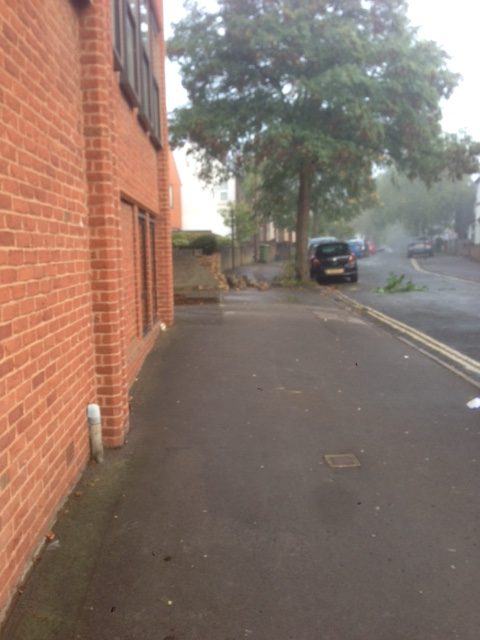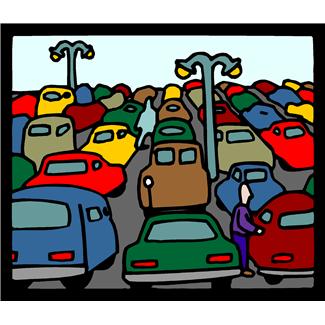Ruth’s Lib Dem motion for Oxford City Council to lobby nationally for the power to impose a tourism tax was carried unanimously with cross-party support at Full Council on Monday.
The issues around tourist taxes are quite complex. Here is the text of Ruth’s speech.
In his 2007 inquiry into local government, Lyons recommended that the Government should consider legislating to allow some authorities to introduce a tourism-related tax where appropriate.
In January, the London Finance Commission reported on options for a tourist levy. It sets out international comparisons and estimated revenues.
Here are some broader economic arguments that have been made about tourist tax.
- Tourists impose costs on the host society that are not paid for by the tourist. Residents should be compensated.
- Tourists consume un-priced natural amenities and public goods
- The tourism sector should bear the costs of promotion
- Tourist taxes are common in many European cities
- Hotel taxes may lead to a decrease in demand
- The tourism sector is already heavily taxed in terms of ticket taxes, airport taxes and VAT
- Tourist taxes shouldn’t only be levied on hotel accommodation
- The admin burden would fall on businesses
How could a tourism-related levy work?
- Flat rate per night’s stay e.g. in Lisbon
- Percentage per hotel stay cost e.g. Berlin and Amsterdam
- Flat rates set in bands e.g. according to star rating like in Paris and Rome
AirBnB has agreed with Amsterdam authorities to simplify the payment of the tourist tax by collecting and remitting those taxes on behalf of hosts.
There are alternative voluntary schemes too but audit would need to be transparent.
In Hackney, a £1 per night voluntary donation is added to guests’ hotel bills for:
- hospitality training schemes supported by council programmes
- Support for cultural events
- Improvements to public spaces
The Heart of the Lakes accommodation company in the Lake District automatically adds £2 to every invoice it raises – guests can opt out (but don’t)
There are Tourism Business Improvement Districts in Loch Ness and Torbay, and consultation is underway on another one in Birmingham.
Westminster, Birmingham, Brighton, Bath, Edinburgh and Cornwall have all considered a tourist tax in recent years but none have gone ahead because the power to impose this has not been devolved by national government.
Camden Council wants to charge a tourist levy of £1 per person per night to use for extra street cleaning in popular areas like Camden Lock.
The figures for average hotel stay in Oxford are different from those in London where the average stay is much longer at 5.83 days. Inbound tourism is set to increase with the Westgate retail offer but how much of this will translate into increased hotel occupancy?
The devolution of power to local authorities to impose tourist taxes may be well worth fighting for, at a time of post-Brexit uncertainty and public spending cuts. I look forward to a wider debate.
Here is the text of the motion that was agreed.
Power to impose a tourist tax in Oxford
Council notes that a number of local authorities are currently lobbying for the power to impose tourist bed taxes or “hotel levies”. These include Camden, Westminster, Bath, Birmingham, Brighton, Edinburgh and Cornwall.
Council also notes the recent support by the Mayor of London for the introduction of such a levy following the publication for the London Finance Commission by the GLA of Working Paper 83 entitled Options for a tourism levy for London. This report gives details of tourist taxes levied across the world in cities that have a high proportion of tourists.
Council recognizes that the British Hospitality Association is strongly opposed to any imposition of a bed tax, and that the VAT rates in the UK on hotel accommodation are much higher than in other EU countries.
Oxford is the seventh most visited city in the UK by international visitors and is the tourism gateway to the rest of Oxfordshire. The opening of the new Westgate retail offer is expected to generate increased visits to Oxford. Council welcomes tourism in Oxford as this brings many benefits to the City, however this does bring with it an extra demand for infrastructure and environmental improvements, and cost to the Council of increased workload in some departments, for example Streetscene and Parks.
Council notes that there are uncertainties ahead post-Brexit with respect to Oxford’s economy, and that it may be wise to join other authorities in lobbying for the power to introduce and retain a tourism levy.
Council therefore asks the Chief Executive and the Leader of the Council to work with other local authorities representing cities with high rates of tourism to lobby jointly for the devolution of the above power. It further requests that Council writes to Oxford’s two MPs to inform them of this Council’s motion and ask for their support.
Useful references:
https://www.london.gov.uk/sites/default/files/tourism-levy-for-london-wp83.pdf
http://uk.businessinsider.com/sadiq-khan-calling-for-visitors-to-be-hit-by-new-tourism-tax-2017-1
http://www.independent.co.uk/travel/news-and-advice/could-bath-be-the-first-uk-city-to-bring-in-a-tourist-tax-a7516856.html


